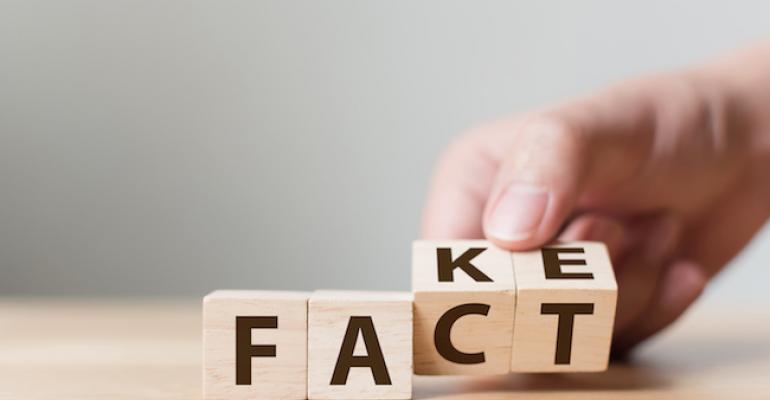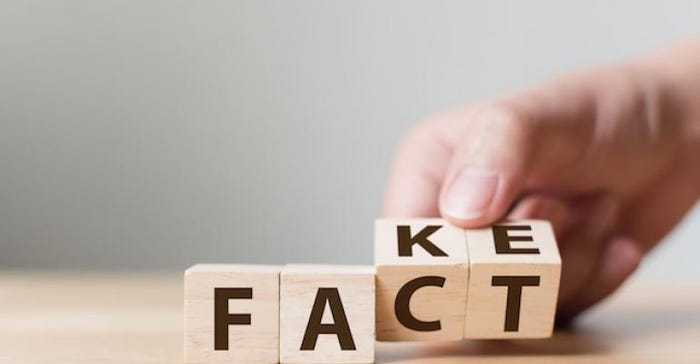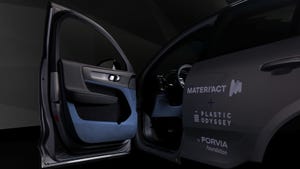People are being told that certain plastic items made from bioplastic materials are “compostable,” yet most are not. To help educate consumers, Oregon has published the nine rules of composting.
January 30, 2020

Being “green” has its rules, and they are often confusing. To quote Kermit, “It isn’t easy being green.” A big part of the problem in getting people to dispose of their waste properly is educating them on the rules.

Most people believe that anything that is thrown into the blue curbside bins can be recycled. Take paper, for example. Some recyclers have stopped accepting paper because most of them are drowning in it. Composters will not accept paper that has been bleached white with chlorine, which creates dioxins that are toxic. After all, compost is used to grow things, so we don’t want toxic substances in compost. Additionally, paper with certain inks and coatings used to make it shiny and slick is not acceptable. So paper is not always recyclable, and mostly not at all when it comes to composting.
Recycling and composting have their rules. Recycled plastics, for example, must be clean (rinsed/washed out) before being placed in the recycle bin. Labels are a big problem: The recycler of plastic bottles and containers must remove the labels and adhesives by a hot water/chemical bath. Recycled bottles must have the caps/closures left on them.
Composters have the biggest problem because people are being told that certain plastic items made from bioplastic materials are “compostable,” yet most are not. Educating people is a tough task, so recently the state of Oregon published “A message from composters serving Oregon: Why we don’t want compostable packaging and serviceware.” The message contains nine composting rules to educate consumers.
The “quality of the compost is critical to create healthy soil, reduce greenhouse gas emissions, recycle nutrients and conserve water, and it may reduce the use of synthetic fertilizers, pesticides and herbicides,” said the message. Unfortunately, misinformation (aka “greenwashing”) from companies trying to sell their plastic products as “compostable” is causing packaging and serviceware items to end up at composting facilities. “These materials compromise our composting programs and limit many of the environmental benefits of successful composting,” said the message. The composters listed nine reasons why they don’t want compostable packaging or serviceware delivered to their facilities.
These items don’t always compost. “Not all ‘certified’ compostable items will actually compost (break down) as fully or quickly as we need them to. This is because certification standards test compostability based on laboratory conditions,” not always in “real world” environments. Thus, bits of plastics remain in the compost—something people do not want.
Contamination happens. People don’t always sort “compostable” plastics from non-compostable plastics—yes, it’s tough to tell the difference. But the composters say that these materials must be removed, “either at the start (when we receive them) or at the end (as pieces of garbage are mixed in with finished compost),” which increases the composters’ operating costs and degrades their product.
They hurt resale quality. “We don’t want to produce finished compost that is contaminated with fragments of packaging and serviceware, and our consumers won’t purchase contaminated material,” the composters explained. “Contamination lowers the value of our product, making it difficult and sometimes impossible to sell.”
We can’t sell to organic farmers. “Farmers often use compost in the production of certified organic foods,” said the composters. “National standards prohibit the use of many different packaging materials when making compost used to grow crops certified as USDA Organic.”
They may threaten human and environmental health. Chemicals in paper packaging, such as perfluorinated alkyl substances (PFAS) to provide water and grease resistance “can transfer from compost to ground and surface waters, can be taken up by plants from compost and may have negative health impacts,” noted the message. (Here I would like to add that this is perhaps one of the best cases for using plastics for take-out food containers rather than the less eco-friendly paper.) PFAS is being phased out by some makers of paper containers, but it has not been regulated out of existence.
It increases our costs and makes our job harder. “Some of us have accepted compostable packaging in the past and found that loads of compostable packaging require us to change our processes, adding water, using more energy and spending additional resources to produce finished compost,” said the composters. “Some types of compostable packaging mostly degrade into carbon dioxide and water and leave behind little of value for all of the extra effort required.”
Just because something is compostable doesn’t mean it’s better for the environment. “Oregon DEQ has found that compostable serviceware often has a larger (life-time) environmental footprint than non-compostable items. For example, compostable materials may require more fossil energy use, release more greenhouse gases or result in more ecological toxins than their non-compostable counterparts, mostly due to how they’re made,” explained the composters in the message. “The research confirms what scientists already know: What materials are made of, and how they’re made, may be more significant than whether they’re composted vs. landfilled. ‘Composting’ and ‘compostable’ are not the same idea. Composting is a beneficial treatment option for organic wastes, but ‘compostable’ is not a guarantee of low impact.” (I would advise that the next time you are at a large conference or function where you are served appetizers on paper cocktail plates and given “compostable sporks” with which to eat, explain to the servers—or, better yet, the food manager—that these items are really not compostable and they would be doing more for the environment to use “recyclable” plastic plates and serviceware.)
In some cases, the benefits of recycling surpass those of composting. The composters suggest that there are some cases where if an item, like paper bags, can be either recycled or composted, the better option just might be recycling, which “can provide greater overall environmental benefits than composting does.”
Good intentions aren’t being realized. “Compostable items often cost more, sometimes up to five times as much as non-compostable alternatives. That’s a lot of money spent on products that might not actually help the environment—money that could be spent in more productive and beneficial ways.”
Ultimately, said the composters in their message to consumers, “we need to focus on recycling organic wastes, such as food and yard trimmings, into high-quality compost products that can be used with confidence to restore soils and conserve resources. Compostable packaging doesn’t help us to achieve these goals. We need clean feedstocks in order to produce quality compost.”
From my point of view, I say it’s high time that compostable plastics be outlawed as nothing more than “greenwashing.” Saying something is “compostable” while knowing that it really isn’t and that composting facilities won’t take it is just plain false and misleading advertising. I told one company as much when it sent me a press release about a new “compostable” plastic material that breaks down into “nutrient rich soil.” I called them out on this and asked them for the scientific proof that their plastic actually could turn into soil. I never heard back from them.
It hurts the entire plastics industry when these misleading “greenwashing” promotions are allowed to proliferate. We need to stand up for the scientific truth—not magical thinking—about the materials we produce and use in our lives every day that have so many benefits, including recyclability!
Image: Monster Ztudio/Adobe Stock
About the Author(s)
You May Also Like




